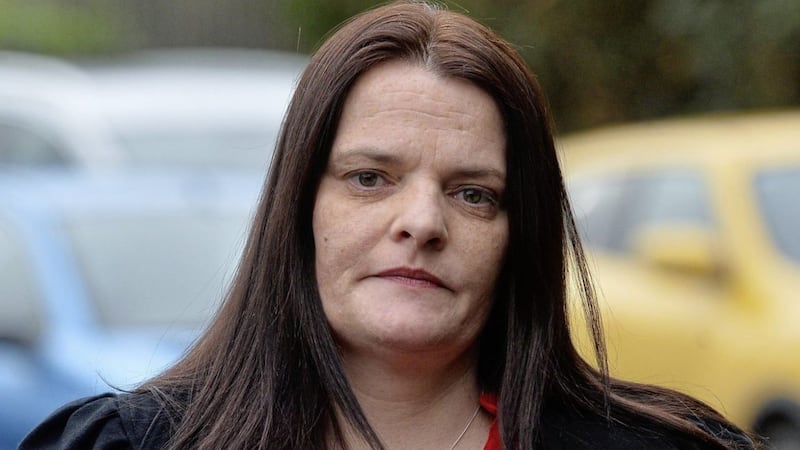A FORMER policewoman jailed for killing a father-of-two in a road crash has failed to have her nine-year sentence reduced.
Judges at the Court of Appeal in Belfast today rejected claims that the prison term handed down to Eilish MacSherry for causing the death of Paul Mills by dangerous and drunken driving was manifestly excessive.
MacSherry (41) had taken prescription drugs and was twice over the legal alcohol limit when the fatal collision occurred on the outskirts of Omagh, Co Tyrone in October 2015.
Upholding her jail sentence, Lord Justice Gillen said: "This was an outrageous piece of bad driving which caused the death of an innocent, good man and devastated his family."
However, the ex-PSNI officer's 15-year driving ban was cut to 10 years.
At the time of the crash MacSherry, from Brookmount Heights in Omagh, was wearing her pyjamas, dressing gown and slippers and had no recollection of what happened.
Other motorists were forced to swerve out of her way as she entered the Clanabogan Road at speeds in excess of 80mph on the wrong side of the carriageway.
It was estimated that her Saab car was travelling at nearly 60mph when it collided head on with 49-year-old Mr Mills' stationary vehicle.

Witnesses recalled seeing her careering down the road at speed and hearing a sound like an explosion at the point of impact.
The court MacSherry had been suffering from the breakdown of her marriage, and was on sick leave before ultimately resigning from the PSNI.
She admitted causing death by dangerous driving, driving while unfit through drink or drugs, and failing to stop following a collision with another car just before the fatal crash.
Her lawyers mounted an appeal after she received a sentence of nine years imprisonment - half to be served behind bars and half on licence.
They argued that it was based on a starting point which had been too high, and claimed insufficient discount was given for MacSherry's guilty pleas and remorse.
But Lord Justice Gillen, sitting with Lord Justice Weir and Mr Justice Colton, decided not to interfere with the jail term.
"These are cases which demand a deterrent sentence," he said.
"This was a classic case of the most serious genre of culpability. The sentence was stiff but condign."
MacSherry displayed no emotion as she was escorted from the courtroom for her return to prison.





